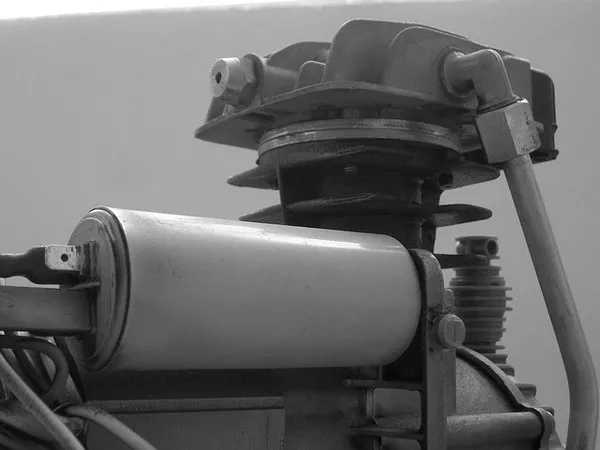In the realm of air conditioning systems, the compressor plays a pivotal role in ensuring optimal performance and efficiency. Understanding the lifespan of AC compressors is crucial for homeowners and businesses alike, as it directly impacts maintenance schedules, replacement decisions, and overall system reliability. In this article, we delve into the factors that influence the longevity of AC compressors, providing insights into their expected lifespan and offering tips to maximize their durability.
Understanding AC Compressors
Before exploring the lifespan of AC compressors, it is essential to comprehend their function within an air conditioning system. The compressor serves as the heart of the system, responsible for pressurizing the refrigerant gas and circulating it through the system’s coils. This process is integral to the cooling and dehumidifying functions of an air conditioner, making the compressor a critical component for maintaining indoor comfort.
Average Lifespan of AC Compressors
The average lifespan of an AC compressor typically ranges between 10 to 15 years. However, this estimate can vary based on several factors, including the quality of the compressor, the frequency of maintenance, environmental conditions, and usage patterns. While some compressors may exceed the 15-year mark with proper care, others may fail prematurely due to neglect or unfavorable circumstances.
Factors Influencing AC Compressor Lifespan
1. Quality of the Compressor:
The quality of the compressor is a fundamental factor in determining its lifespan. High-quality compressors, often found in reputable brands and models, tend to be more durable and reliable. Investing in a system with a top-tier compressor can pay off in the long run, as it is likely to withstand wear and tear better than lower-quality counterparts.
2. Maintenance Practices:
Regular maintenance is a key factor in extending the life of an AC compressor. Neglecting routine tasks such as cleaning the coils, replacing air filters, and checking refrigerant levels can lead to increased stress on the compressor, ultimately reducing its lifespan. Homeowners and businesses should adhere to manufacturer-recommended maintenance schedules to ensure optimal performance and longevity.
3. Environmental Conditions:
The environment in which an air conditioning system operates greatly influences the lifespan of its compressor. Extreme temperatures, excessive humidity, and exposure to corrosive elements can accelerate wear and tear on the compressor components. It is advisable to install the AC unit in a well-ventilated area and provide adequate protection against environmental factors.
4. Usage Patterns:
The frequency and intensity of AC usage also impact compressor lifespan. Systems that are constantly running or subjected to abrupt and frequent temperature changes may experience faster wear on their components. Implementing energy-efficient practices, such as using programmable thermostats and maintaining consistent temperature settings, can contribute to a longer compressor life.
5. Proper Sizing and Installation:
Ensuring that the AC system is appropriately sized for the space it serves is crucial for preventing unnecessary strain on the compressor. Additionally, proper installation by certified professionals is essential to avoid issues such as inadequate refrigerant charge or improper wiring, both of which can adversely affect compressor performance and longevity.
Tips for Maximizing AC Compressor Longevity
1. Scheduled Maintenance:
Adhere to the manufacturer’s recommended maintenance schedule, including tasks such as cleaning coils, replacing air filters, and checking refrigerant levels. Regular professional inspections can identify potential issues early on and prevent unnecessary strain on the compressor.
2. Air Quality Improvement:
Maintaining good indoor air quality can indirectly contribute to the longevity of the AC compressor. Clean air filters reduce the strain on the system, preventing debris and dust from accumulating on the compressor coils and other components.
3. Temperature Control:
Implementing energy-efficient temperature control practices, such as using programmable thermostats and avoiding drastic temperature changes, can reduce the workload on the compressor and contribute to its longevity.
4. Proactive Repairs:
Addressing minor issues promptly can prevent them from escalating into major problems that could compromise the compressor’s functionality. Regular inspections and timely repairs can significantly extend the lifespan of the AC compressor.
See Also How Much To Replace Ac Compressor In Car
Conclusion
In conclusion, the lifespan of AC compressors is influenced by various factors, ranging from the quality of the compressor to environmental conditions and maintenance practices. While the average lifespan falls between 10 to 15 years, proactive measures such as regular maintenance, proper installation, and conscientious usage can significantly extend the compressor’s durability. Homeowners and businesses alike should prioritize these factors to ensure optimal performance and longevity from their air conditioning systems. Ultimately, a well-maintained and properly cared-for AC compressor not only enhances energy efficiency but also contributes to a comfortable and controlled indoor environment for years to come.

